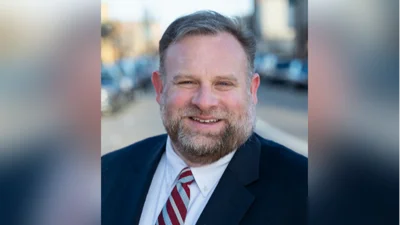Angelina Cruz, Wisconsin State Representative for 82nd District | Facebook
Angelina Cruz, Wisconsin State Representative for 82nd District | Facebook
According to the Wisconsin State Legislature's official website, the bill was described as follows: "requiring the legislature to convene an extraordinary session if an executive order of the president of the United States freezes federal aid to the state".
The following is our breakdown, based on the actual bill text, and may include interpretation to clarify its provisions.
In essence, this bill mandates the Wisconsin legislature to call an extraordinary session if the president issues an executive order that freezes federal aid previously authorized to the state. The session will focus on a bill that outlines a procedure to estimate the loss in federal aid for state agencies, eligible local governmental units, and nonprofits. It provides for payments from the budget stabilization fund to offset these losses, prioritizing essential services. Payments to local units and nonprofits will be capped at the amount they would have received if not for the freeze. If federal aid is later unfrozen and reimbursed, the funds are to be returned to the stabilization fund.
The bill was co-authored by Senator Chris Larson (Democrat-7th District), Representative Clinton M. Anderson (Democrat-45th District), Representative Margaret Arney (Democrat-18th District), Representative Mike Bare (Democrat-80th District), and Representative Jill Billings (Democrat-95th District). It was co-sponsored by Senator Mark Spreitzer (Democrat-15th District), along with 26 other co-sponsors.
Angelina M. Cruz has co-authored another nine bills since the beginning of the 2025 session, with none of them being enacted.
Cruz graduated from the University of Wisconsin-Parkside in 2003 with a BA.
Cruz, a Democrat, was elected to the Wisconsin State Assembly in 2025 to represent the state's 62nd Assembly district, replacing previous state representative Robert Wittke.
In Wisconsin, the legislative process starts when a senator, constituent, group, or agency proposes an idea for a bill. After drafting, the bill is introduced, numbered, and referred to a committee for review and public input. If approved, it moves through three readings and votes in both the Senate and Assembly. Once both chambers pass the same version, the bill goes to the governor, who can sign it, veto it, or let it become law without a signature. Only a small share of bills introduced each session ultimately become law. You can learn more about the Wisconsin legislative process here.
| Bill Number | Date Introduced | Short Description |
|---|---|---|
| AB150 | 03/17/2025 | Requiring the legislature to convene an extraordinary session if an executive order of the president of the United States freezes federal aid to the state |




 Alerts Sign-up
Alerts Sign-up